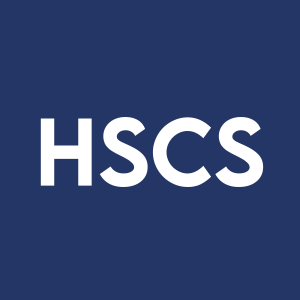HeartSciences Announces Grant of Fundamental Patent by the European Patent Office Covering Assessment of Diastolic Function of the Heart Using AI-ECG
- None.
- None.
Patent covers use of AI-ECG for any echo measure of diastolic function, which is crucial for heart screening and early detection of heart disease
Southlake, Texas, April 24, 2024 (GLOBE NEWSWIRE) -- Heart Test Laboratories, Inc. d/b/a HeartSciences (NASDAQ: HSCS; HSCSW) (“HeartSciences” or the “Company”), an artificial intelligence (AI)-powered medical technology company focused on transforming ECGs/EKGs to save lives through earlier detection of heart disease, today announced that its European Patent Office Application EP3834729 has been granted.
Diastolic dysfunction (impaired cardiac relaxation) is a sensitive and crucial indicator of overall heart health, providing one of the earliest signs of heart disease, with onset typically occurring before symptoms. Diastolic dysfunction is caused by all common issues that affect heart function or that produce hypertrophy. All patients with heart disease have diastolic dysfunction, in contrast to systolic dysfunction (reduced pumping of blood by the heart or reduced ejection fraction), which only affects a subset of patients and typically occurs at a more severe, often symptomatic, stage of heart disease.
Today, measures of diastolic function of the heart need to be assessed in a specialist cardiology environment, typically using echocardiography-based imaging. The ability to assess cardiac diastolic function using an ECG makes it a far more valuable cardiac screening tool, particularly in frontline or point-of-care clinical settings.
Andrew Simpson, Chief Executive Officer of HeartSciences, commented, “We are pleased to receive this latest patent grant which further reinforces our position at the forefront of AI-ECG. This patent is particularly valuable because it covers the use of AI-ECG to produce any echo measure of diastolic function, which is fundamental to screen for a broad range of heart disease at an early stage.”
“Millions of ECGs are performed worldwide every week, and the ECG is the most ubiquitous cardiac test. The addition of cardiac dysfunction detection to the ECG is expected to provide significant benefit to healthcare providers and health systems around the world. Cardiovascular disease accounts for an estimated
The United States Patent and Trademark Office has issued eight utility patents and one design patent to HeartSciences, with patent expiration dates ranging from March 2031 through August 2040. HeartSciences also has 14 international design registrations and 20 international utility patents granted in jurisdictions such as China, Japan, South Korea, the United Kingdom, France, Germany, Mexico, the United Arab Emirates, Brazil, and Australia, with expiration dates ranging from September 2036 through March 2037.
- - Precedence Research 2023
About HeartSciences
Heart Test Laboratories, Inc. d/b/a HeartSciences is a medical technology company focused on applying innovative AI-based technology to an ECG (also known as an EKG) to expand and improve an ECG's clinical utility. Millions of ECGs are performed every week and the Company's objective is to improve healthcare by making it a far more valuable cardiac screening tool, particularly in frontline or point-of-care clinical settings. HeartSciences has one of the largest libraries of AI-ECG algorithms and is developing AI-ECG solutions to be made available on either a hardware agnostic cloud-based platform or its proprietary MyoVista® wavECG™ device, to help identify cardiovascular disease in any care setting worldwide in a manner to best suit different care providers. HeartSciences' first product candidate for FDA clearance, the MyoVista® wavECG™, or the MyoVista®, is a resting 12-lead ECG that is also designed to provide diagnostic information related to cardiac dysfunction which has traditionally only been available through the use of cardiac imaging. The MyoVista® also provides conventional ECG information in the same test.
For more information, please visit: https://www.heartsciences.com. Twitter: @HeartSciences
Safe Harbor Statement
This announcement contains forward-looking statements within the meaning of Section 27A of the Securities Act of 1933, as amended, and Section 21E of the Securities Exchange Act of 1934, as amended. These forward-looking statements are made under the "safe harbor" provisions of the Private Securities Litigation Reform Act of 1995 and are relating to the Company's future financial and operating performance. All statements, other than statements of historical facts, included herein are "forward-looking statements" including, among other things, statements about HeartSciences' beliefs and expectations. These statements are based on current expectations, assumptions and uncertainties involving judgments about, among other things, future economic, competitive and market conditions and future business decisions, all of which are difficult or impossible to predict accurately and many of which are beyond the Company's control. The expectations reflected in these forward-looking statements involve significant assumptions, risks and uncertainties, and these expectations may prove to be incorrect. Investors should not place undue reliance on these forward-looking statements, which speak only as of the date of this press release. Potential risks and uncertainties include, but are not limited to, risks discussed in HeartSciences' Annual Report on Form 10-K for the fiscal year ended April 30, 2023, filed with the U.S. Securities and Exchange Commission (the "SEC") on July 18, 2023, HeartSciences’ Quarterly Report on Form 10-Q for the fiscal quarter ended January 31, 2024, filed with the SEC on March 14, 2024 and in HeartSciences' other filings with the SEC at www.sec.gov. Other than as required under the securities laws, the Company does not assume a duty to update these forward-looking statements.
Contacts:
HeartSciences
Gene Gephart
+1-682-244-2578 (US)
info@heartsciences.com
Investors
Gilmartin Group
Vivian Cervantes
investorrelations@heartsciences.com

FAQ
What patent has HeartSciences been granted by the European Patent Office?
Why is diastolic dysfunction important for heart health?
What does the patent cover regarding diastolic function assessment?
How does AI-ECG benefit heart health screening?
What is the significance of this patent for HeartSciences?







